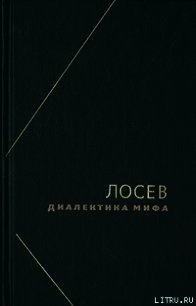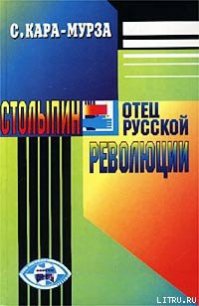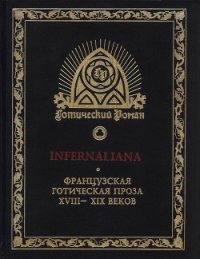Культурные истоки французской революции - Шартье Роже (электронная книга txt, fb2) 📗
17
Auerbach Е. Mimesis. Dargestelte Wirklichkeit in der abendlândischen Literatur. Bern: Francke AG Verlag, 1946, chap.XV (франц. пер.: Mimesis. La représentation de la réalité dans la littérature occidentale. Paris: Gallimard, 1968, p.365—394, citation p.388. Рус. пер.: Ауэрбах Э. Мимесис. M., 1976, гл. XV, c. 362—395, цитата cp. c. 389.
18
Tocqueville A. de. L’Ancien Régime et la Révolution. Paris: Gallimard, 1967, р.81. Рус. пер.: Токвиль А. де. Старый порядок и Революция. Пер. М. Федоровой. Науч. ред. А.Руткевич. М., 1997, с.24. Почти все цитаты, кроме цитат из первой главы III книги, даются по этому изданию.
19
Все цитаты из Токвиля в этой и следующей подглавах, данные без ссылок, взяты из первой главы III книги «L’Ancien Régime et la Révolution», op. cit. p.229—241. Рус. пер.: Токвиль А. де. Каким образом в середине XVIII столетия литераторы сделались во Франции самыми влиятельными политиками и что из этого вышло. Пер. В. Мильчиной. — Новое литературное обозрение, 1994, N° 9, с.376—384.
20
Tocqueville A. de., op.cit, р.158 (рус. пер., с.69).
21
Ibid., р.43 (рус. пер., с.З).
22
Baker К. М. On the Problem of the Ideological Origins of the French Revolution. — In: Modern European Intellectual History. Reappraisals and New Perspectives. Ed. D. LaCapra and S.L. Kaplan. Ithaca and London: Cornell University Press, 1982, p.197—219, цитата — c.212 (вошло в кн.: Baker К. M. Inventing the French Revolution. Essays on French Political Culture in the Eighteenth Century. Cambridge: Cambridge University Press, 1990, p.12—27).
23
Baker К. M., art. cit., p.231—216.
24
Cochin A. Les Sociétés de pensée et la Démocratie moderne. Etudes d’histoire révolutionnaire (1921). Paris: Copernic, 1978; idem. Les Sociétés de pensée et la Révolution en Bretagne (1787—1788), 1925; Furet F. Augustin Cochin: la théorie de jacobinisme. — In: Penser la Révolution française, op. cit., p.212—259; Halévi R. L’idée et l’événement. Sur les origines intellectuelles de la Révolution française. — Le Débat, 38, 1968, p.145—163.
25
Habermas J. Strukturwandel der Ôffentlichkeit. Neuwied: Hermann Luchterhand Verlag, 1962 (франц. пер.: L’Espace public. Archéologie de la publicité comme dimension constitutive de la société bourgeoise. Paris: Payot, 1978).
26
Certeau M. de. La formalité des pratiques. Du système religieux à l’éthique des Lumières, XVIIe—XVIIIe. — In: La Societa religiosa nell’età moderna. Napoli: Guida Editori, 1973, p.447—509 (вошло в кн.: L’Ecriture de l’histoire. Paris: Gallimard, 1975, p.153—212).
27
Foucault M. Surveiller et Punir. Naissance de la prison. Paris: Gallimard, 1975. Рус. пер.: Фуко M. Надзирать и наказывать. M., 1999.
28
Habermas J. Strukturwandel der Ôfflentlichkeit. Neuwied: Hermann Luchterhand Verlag, 1962, [франц. пер. — см. примеч. 25]. См. также: Hohendahl Р. Jürgen Habermas: «The Public Sphere» (1964); Jürgen Habermas. The Public Sphere: An Encyclopedia Article (1964). — New German Critique, Vol. 1, N 3, Fall 1974, p.45—55.
29
Habermas J. L’Espace public, op. cit., p.38.
30
Descartes R. Discours de la méthode. 3e partie. — Oeuvres complètes. Paris: Gallimard, «Bibliothèque de la Pléiade», 1953, p. 141. Рус. nep.: Декарт P. Соч. в 2-х т., т.1. М., 1989, с.263. Пер. Г.Г. Слюсарева.
31
Ibid., р.144. Рус.пер., с.226.
32
Habermas J. L’Espace public, op. cit, p.48.
33
Ibid., p.63. О месте женщин в абсолютистском и буржуазном обществе см.: Landes J. Women and the Public Sphere in the Age of the French Revolution. Ithaca and London: Cornell University Press, 1988.
34
Baker К. M. Representation. — In: The Political Culture of the Old Regime. Ed. К. M. Baker. Oxford: Pergamon Press, 1987, p.469—492 (перепечатано под заглавием «Representation Redefined» в кн.: Baker K.M. Inventing the French Revolution. Essays on French Political Culture in the Eighteenth Century, op. cit. [примем. 22], p.224—251).
35
KantI. Beantwortung der Frage: Was ist Aufklarung? — Berlinische Monatsschrift, 1784 (франц. пер.: Réponse à la question: Qu’est-ce que les Lumières? — La Philosophie de l’histoire (opuscules). Paris: Denoël/Gonthier, «Médiations», 1983, p.46—55). См. три комментария к этому тексту: Cassirer Е. Kants Leben und Lehre. Berlin: 1918 (англ, пер.: Kant’s Life and Thought. New Haven: Yale University Press, 1981, p.227—228, 368); Habermas J. Strukturwandel der Offentlichkeit, op. cit. (франц. пер.: L’Espace public, op. cit., p.112—126); Foucault M. Afterword: the Subject and the Power. — In: Dreyfus H.L., Rabinow P. Michel Foucault. Beyond Structuralism and Hermeneutics. Chicago: University of Chicago Press, 1982, p.208—226, в частности, p.215—216, а также: Un cours inédit. — Le Magazine littéraire, n° 207,1984, p.35—39. В восьми следующих подглавах все цитаты, данные без ссылок, взяты из этого текста Канта. Рус. пер.: Кант И. Ответ на вопрос: что такое Просвещение? 1784. — Кант И. Соч. в 6-ти т., т. 6. М., 1966, с.25—35. Пер. Ц.Г. Арзаканьяна. Почти все цитаты даны по этому изданию.
36
Для интеллектуальной деятельности в XVII веке было характерно то, что образованные люди, по большей части вольнодумцы, переписывались, обменивались рукописями, посылали друг другу книги в подарок или одалживали их для чтения; затем, во второй половине столетия, к этому прибавилось чтение научных газет и журналов (ср. Mandrou R. Des humanistes aux hommes de science (XVIe et XVIIe siècles). Paris: Ed. du Seuil, 1973, p. 151—153, 207—215; Roche D. Correspondance et voyage au XVIIIe siècle: le réseau de sociabilité d’un académicien provincial, Séguier de Nîmes. — In: Les Républicains des lettres. Gens de culture et Lumière au XVIIIe siècle. Paris: Fayard, 1988, p.263—280). У Канта мы видим, что в Германии интеллектуальная деятельность еще сильнее зависит от хождения письменного слова, чем во Франции, где все интеллектуалы сосредоточены в одном месте — в столице. В 1827 году Гете отметит эту национальную особенность: «Наши таланты и умные головы рассеяны по всей Германии. Один живет в Вене, другой — в Берлине, третий — в Кенигсберге, четвертый — в Бонне или в Дюссельдорфе, их разделяют пятьдесят или сто миль, так что личные встречи и личный обмен мнениями — вещи весьма редкие». (Цит. по: Elias N. Uber den Prozess der Zivilisation. Soziogenetische und psychogenetische Untersuchungen (1939), op. cit [примеч.11], tl, p.33—34.) Ср. также: Dibon Р. Communication in Respublica litteraria of the 17th Century. — Res Publica Litterarum, I, 1978, p.42—55.
37
Ozouf M. L’Opinion publique. — In: The Political Culture of the Old Regime, op. cit., p.419—434; цитаты взяты из примем. 24, с.432—433 (перепечатано под заглавием: Le concept d’opinion publique au XVIIIe siècle. — In: L’Homme régénéré. Essais sur la Révolution française. Paris: Gallimard, p.21—53).




